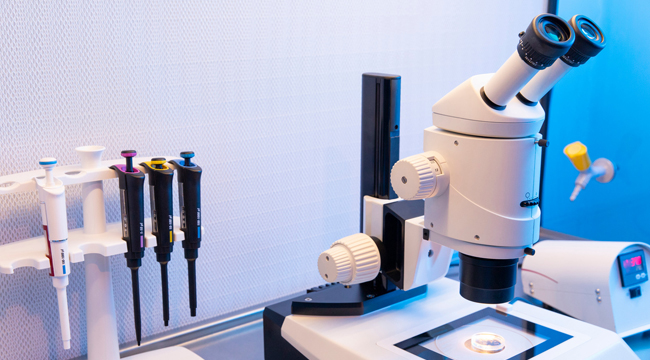Sperm Count
Male infertility can be caused by low sperm production or low sperm count caused by abnormal sperm production or blockages that prevent the delivery of sperm. Illnesses, injuries, chronic health problems, lifestyle choices and other factors may contribute to male infertility caused by low sperm count. Once a semen sample is submitted in a laboratory for testing, it is placed in a counting chamber to be observed under a microscope. To count the number of sperm, fertility specialists use squares of 10 and multiplied by a factor – 106/ml – and expressed as millions of spermatozoa per ml.
Normal Values
Sperm are male reproductive cells present in the ejaculate. Sperm count is ascertained using a test called semen analysis. The average sperm count is between 40 million and 300 million sperm per millilitre of ejaculate. It is imperative to note that even men with a moderate or “normal” sperm count may experience infertility, as other factors can influence how effectively sperm can fertilize an egg.
Low Sperm Count
A low sperm count is defined as a value of anything below 10 million sperm per ml of ejaculate. While it is true that a low sperm count can negatively impact a person’s fertility, it does not mean that pregnancy is not possible. However, it is the chances of conception that go down. For example, suppose a person has a sperm count that is less than normal – between the range of 20 million to 40 million sperm per ml. In that case, they may still be able to have a normal level of fertility should the quality of the sperm be high with good shape, size and motility.
The causes associated with low sperm count include – abnormalities in the functioning of the testicles (testes) and the hypothalamus and pituitary glands. Some of the other common causes associated with low sperm count can be enumerated as – infections, swelling of the veins in the testicles, ejaculatory problems, cancers or tumours, chromosomal defects, past surgeries, and congenital abnormalities.
In some cases, the low sperm count can be precipitated by environmental factors such as – exposure to certain chemicals and pollutants, exposure to excessive radiation, and others. Lifestyle also determines low sperm count with excessive drug use, alcohol abuse, smoking, depression, excessive weight, all contributing to lower-than-normal sperm count.
How much amount of sperm is considered optimal in a sperm sample?
The average sperm count is between 15 million and 39 million sperm per millilitre of ejaculate. Anything in between this range is considered optimal, whilst anything below is taken as below-optimal. While the count is given as a range, it doesn’t include or preclude chances of conception altogether as several other factors are also involved in conception.
How many sperm cells does a man need to be considered fertile?
An average of 20 million sperm per ml is the lowest sperm count a man will need to be considered fertile. Although it is still low at 20 m/ml, with other factors being good, one can still be fertile and father a child.
Can you increase sperm count?
Yes, improvement of sperm count is possible with various remedies that can help to different degrees. A good lifestyle with adequate weight and active daily life can boost the production of sperm. Likewise, quitting smoking, alcohol and drug abuse, etc., can have positive effects. Certain medications must be avoided – these include opiates, antidepressants, anti-androgens and others.
How many sperm cells are required for artificial insemination?
For artificial insemination to be successful, a man would require a minimum of 3 million sperm per ml. However, the same for in-vitro fertilization or ICSI is even lower than this limit.



